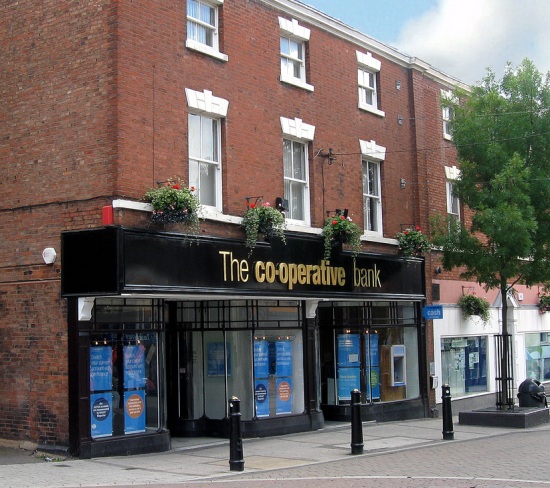The Co-Operative has been a central high street presence in the UK for decades now, providing a local service to towns and villages throughout the country both in the grocery and banking industries. However, with the Group having admitted to facing its toughest conditions for 40 years last year, it seems that things have been going steadily downhill for the commercial property chain, with both its banking and retail stores struggling to stay afloat in the recession.

Due to local convenience stores such as Tesco Extra springing up across the country, monopolising the small town market that the Co-Op is known for, the groceries side of the business is finding it difficult to maintain its levels of custom. Additionally, the rather damp summer Britain has been experiencing has done nothing to boost the Group’s flagging sales – with downpours becoming a daily occurrence as the season progressed, many consumers chose to drive to larger out of town supermarkets rather than walk to their local Co-Op branch.
Meanwhile, the banking arm of the Co-Operative Group has hardly performed much better, with the recent Payment Protection Insurance (PPI) claims taking a toll on profits. Recessional factors have also played a role in this, such as bad debts from lending to corporate customers and a significant drop in interest rates.
As a result, overall Group profits dropped by a staggering 34 per cent in the 26 weeks to June 30th of this year. Whilst still making this a profit of £174 million, it falls well short of the Group’s forecasts from the end of the fourth quarter last year.
Peter Marks, current Chief Executive who plans to retire later this year, said; “A year ago I warned that we were operating in the worst conditions that I have ever seen in more than 40 years in business.
“The results we are announcing today show the full impact of that, with the profitability of our two biggest businesses affected.”
Despite the drop, the Co-Operative Group has called its performance “satisfactory”, given the current economic climate it is operating within. In order to combat falling custom, it plans to open its commercial properties for longer to improve customer satisfaction levels. Additionally, it has recently entered into a bidding war to purchase more than 600 branches from banking giants Lloyds, which it says will improve its financial strength by giving it access to more than 4.8 million customers and 754 ATMs.
The past two quarterly performances have not affected the Group’s plans to invest £2 billion into the business over the next three years – money, it hopes, will be well spent in order to see a rise in profits when the economy begins to pick up again.
Mr Marks continued; “It is in times like these when our ownership model as a mutual really comes into its own.
“We have been able to continue to invest for the long-term development of all our businesses and to protect our customers even though we, like all businesses, have felt the impact of the tough headwinds of the unrelenting consumer downturn.”
Do you believe that long standing businesses such as the Co-Op should be protected from the effects of the recession more than businesses with less longevity and different business models? Do you still shop or bank with the Co-Operative Group, or do you prefer to frequent larger supermarkets and more mainstream high street banking chains?
Previous Post
Michael Palin Joins ‘No to Costa’ Chorus